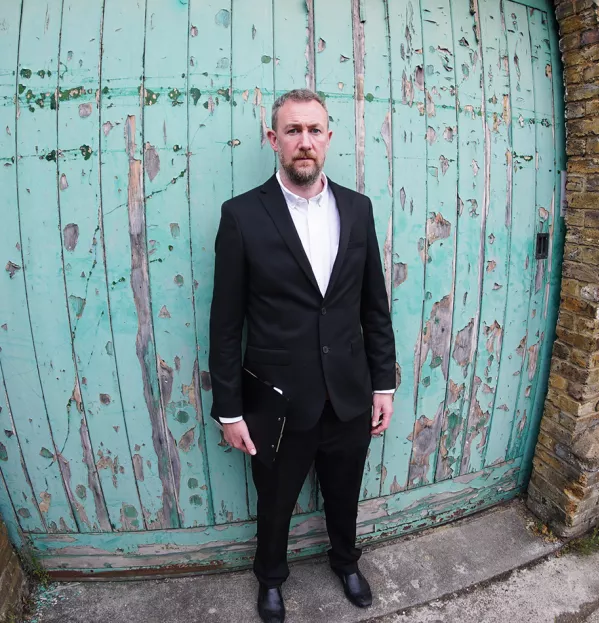- Home
- Teaching & Learning
- Primary
- Taking primary pupils to Task(master)
Taking primary pupils to Task(master)

At first glance, the hit Channel 4 television show Taskmaster - in which celebrities attempt to complete a series of challenges set for them by the comedian Greg Davies - doesn’t seem to have much to do with learning about the law.
But in fact, the format of the show is a perfect vehicle for legal outreach work: it’s all about interpreting rules, stretching word meanings to their limits and trying to please a belligerent judge.
School Tasking is a Warwick Law School-led project that aims to replicate the joy of the Taskmaster TV show in outreach work with primary schools in less-advantaged areas.
What is School Tasking?
In School Tasking, teams of law students in 32 universities across the UK and Ireland lead in-school sessions with Year 5 classes in less-advantaged schools.
These sessions cover some of the most interesting aspects of law - the curious cases, the contentious issues (is a Jaffa Cake a cake or a biscuit?) and gruesome legal history - and do so while honing key legal skills, including advocacy, lateral thinking and problem-solving.
At the end of each session, the Year 5 teams complete tasks that are then sent to another group of Year 5 “Taskmasters” for judging.
The tasks are consistent for all the School Tasking participants across the country.
Some recent examples include drawing “the law”, making a legal submission about a fictitious personal injury scenario at the Taskmaster House, or fashioning the rights in the UN Convention on the Rights of the Child out of Play-Doh.
Tasks are judged, points are awarded and the winning team for each university gets to compete in one of six regional finals across the UK.
The winners of each regional final, in turn, will get to attend the Champion of Champions Final, led by Taskmaster creator and star Alex Horne, at the University of Warwick in June 2024.
Making outreach more interesting
In essence, it’s a fresh approach to project-based learning. But what is the point of it all?
Read more:
- Jean Gross: How school has to change for disadvantaged pupils to thrive
- What is project-based learning?
- Does project-based learning work? Let’s investigate
The idea first came about when I was looking for ways to make legal outreach work with primary school-aged children more interesting and engaging, with the ultimate aim of planting the idea early in children’s heads that university study is a realistic option for them.
Being a Taskmaster fan, I guessed that the format of the show could work brilliantly to inspire Year 5s to think creatively, work collaboratively, and throw themselves into the gently competitive nature of the tasks.
The beauty of Taskmaster as a vehicle for education is that it doesn’t prioritise any particular skill set.
Bringing out each child’s unique talents
Just as in the television show, the wide variety of tasks gives each child the chance to contribute to their teams, based on their own unique talents and skills.
Some tasks prioritise creativity, some logic and others performance.
All children end up feeling like a valued member of their team, and we have seen School Tasking bringing out the very best in our Year 5 participants.
In fact, I’ve often said to the Year 5 teams that their legal reasoning skills are better than that of some law students.
Children are not constrained by concern for the answer the law lecturer might be looking for.
They base their answers to legal questions purely on intuition and they have blown the School Tasking teams away with their skills of interpretation and advocacy.
The benefits
But is School Tasking having a positive effect for the pupils who take part?
The main goal of the project is for the children to enjoy the sessions and to look back on them with a positive view of what university study might be like. So far, initial feedback shows that this goal is being achieved.
If children do then go on to study law at university, that’s amazing.
If they choose to read another university subject, that’s brilliant too.
And if they decide that university isn’t right for them, that’s also great - the hope is that School Tasking introduces children to university study as something that everyone can aspire to and achieve, if that feels like the right course for them.
The key thing is that these children don’t automatically rule themselves out because of who they are or where they come from.
Capturing imaginations
Data from the first two pilot years shows that School Tasking is capturing children’s imaginations.
Furthermore, it reveals that the project is disrupting their preconceptions about what law is, how it works and who it is for. Combined with possibilities for widening access to university, and legal education in particular, the project is, we hope, making a real difference to the children who take part.
Dr Ali Struthers is an associate professor at Warwick Law School and the creator of School Tasking
Schools can register to take part in the project here. Law Schools that want to find out more about running the project should contact: schooltasking@warwick.ac.uk.
Register with Tes and you can read two free articles every month plus you'll have access to our range of award-winning newsletters.
Keep reading with our special offer!
You’ve reached your limit of free articles this month.
- Unlimited access to all Tes magazine content
- Save your favourite articles and gift them to your colleagues
- Exclusive subscriber-only stories
- Over 200,000 archived articles
- Unlimited access to all Tes magazine content
- Save your favourite articles and gift them to your colleagues
- Exclusive subscriber-only stories
- Over 200,000 archived articles
topics in this article



